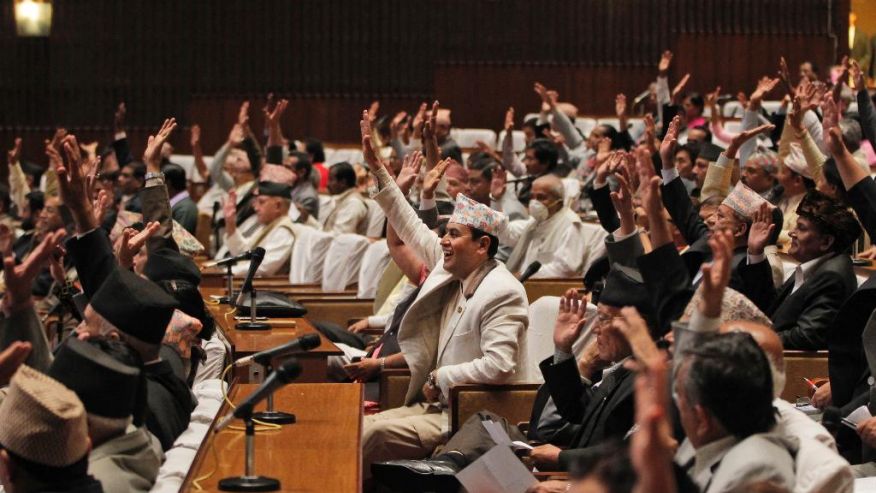-
Tips for becoming a good boxer - November 6, 2020
-
7 expert tips for making your hens night a memorable one - November 6, 2020
-
5 reasons to host your Christmas party on a cruise boat - November 6, 2020
-
What to do when you’re charged with a crime - November 6, 2020
-
Should you get one or multiple dogs? Here’s all you need to know - November 3, 2020
-
A Guide: How to Build Your Very Own Magic Mirror - February 14, 2019
-
Our Top Inspirational Baseball Stars - November 24, 2018
-
Five Tech Tools That Will Help You Turn Your Blog into a Business - November 24, 2018
-
How to Indulge on Vacation without Expanding Your Waist - November 9, 2018
-
5 Strategies for Businesses to Appeal to Today’s Increasingly Mobile-Crazed Customers - November 9, 2018
Nepal signs new constitution into law after 7 years
With almost eight years of effort, Nepal has finally promulgated a new Constitution. Although 60 representatives of the Madhes centric parties and other indigenous groups or janjatis boycotted the promulgation event as they are against the new constitution calling it a farce that denies them their rights.
Advertisement
In an official statement, Nepal’s Ministry of External Affairs suggested administrators are willing to negotiate the more controversial points of Nepal’s new constitution.
Prime Minister Sushil Koirala later tweeted that it was “an issue of pride for all Nepalis that the people’s constitution has been passed”.
An imperfect document is better than nothing, and the constitution can be amended, it said. India, which shares many things in common with Nepal, is upset that the new constitution has disunited, rather than united, the country.
India has a history of intervention in Nepal – in positive ways such as helping the Himalayan nation recover after it was hit by a magnitude-7.8 quake in April, and in less welcoming ways that often involve behind-the-scenes political maneuvering. While setting off celebrations in the capital, Kathmandu, the moment was marred by deadly clashes that killed one person and raised fears of ethnic conflict in the country.
Recently natural disaster in the country has killed more than 9,000 people in 2015 galvanised politicians, as squabbled for 7 years to finish the charter. The Foreign Secretary was sent as the PM’s special envoy but by then the voting on the new constitution had ended. In fact, so severe was the logjam in the Constituent Assembly, which was elected to power in 2008 and brought the Maoists to the helm in Kathmandu, that it collapsed in 2012, after missing several deadlines and despite several multi-point agreement deals.
It urged that issues on which there are differences should be resolved through dialogue in an atmosphere free from violence and intimidation, and institutionalised in a manner that would enable broad-based ownership and acceptance.
Secularism has long been demanded by Nepal’s religious minorities – including Buddhists, Christian, Muslims, and nature worshippers, as well as indigenous groups some of whose cultural traditions have been criminalised by laws based on Hinduism.
“We want them to be part of the process, but it can’t be done without compromise on their side”, said Minendra Rijal, Nepal’s Information and Communication minister and a leader in one of Nepal’s major political parties.
“As a good friend, Nepal will honour India’s genuine concerns and interest and we expect the same from India”, he said.
Advertisement
India has called its ambassador to Nepal back to Delhi for urgent talks.





























